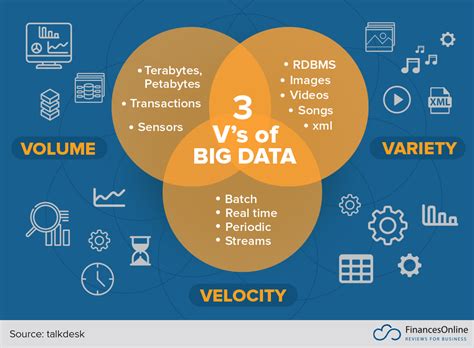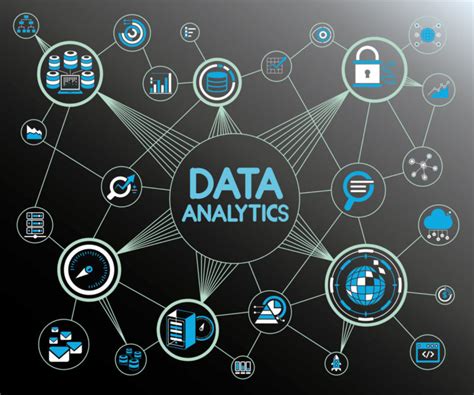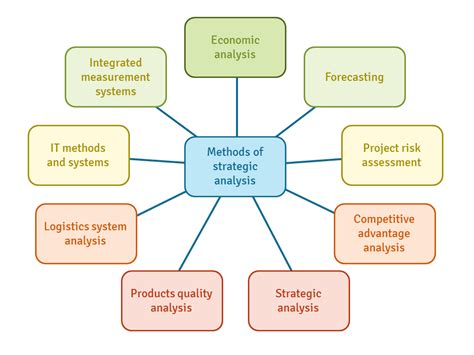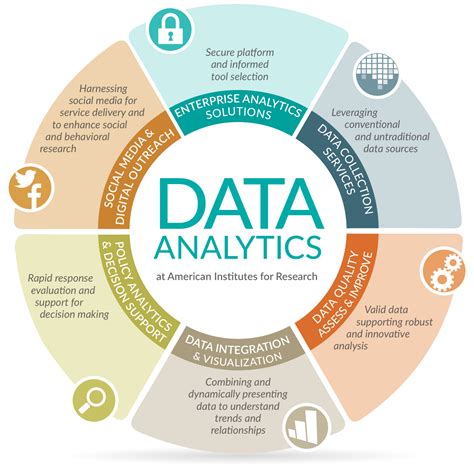Breaking News


Popular News


Learn how to harness the power of big data and analytics for business success. Gain insights, make strategic decisions, and enhance performance with data-driven strategies.In today’s digital age, the use of big data and analytics has become increasingly important for businesses looking to gain a competitive edge. From understanding customer behavior to optimizing operational efficiency, the potential applications of big data and analytics are vast. In this blog post, we will explore the various ways in which big data and analytics can influence business strategy. We will start by delving into the concept of big data and analytics, exploring how businesses can utilize this information to gain valuable insights. We will then discuss the implementation of analytics in business strategy and how companies can leverage big data to their advantage. Additionally, we will examine the integration of data analytics into decision-making processes and how it can enhance overall business operations. Furthermore, we will explore how businesses can measure their performance using big data and analytics. Join us as we uncover the transformative impact of big data and analytics on modern business strategy.
Contents

Big data refers to the massive amount of structured and unstructured data that companies collect on a daily basis. This data comes from a variety of sources including social media, sensors, and other digital platforms. Analytics, on the other hand, involves the process of examining, cleaning, transforming, and modeling data in order to discover useful information, conclusions, and support decision-making. In essence, big data and analytics go hand in hand in the business world.
With big data, companies are able to gather valuable insights into customer behavior, market trends, and overall business performance. This information can then be used to make more informed decisions, develop targeted marketing strategies, and improve overall business operations. Analytics allows for the interpretation of this data, providing actionable insights that drive business growth and success.
By utilizing big data and analytics, businesses are able to gain a competitive edge by understanding their target audience and market demands. This understanding helps businesses to develop products and services that are tailored to meet the needs of their customers, ultimately leading to increased customer satisfaction and loyalty.
Integrating big data and analytics into business strategy has become essential in today’s digital age. Companies that leverage these technologies are able to adapt to market changes more quickly, innovate and create new opportunities, and stay ahead of the competition. Understanding the potential of big data and analytics is crucial for businesses looking to thrive in the modern marketplace.

Big Data has revolutionized the way businesses operate, providing them with access to vast amounts of information that can be used to gain valuable insights into consumer behavior, market trends, and operational effectiveness.
By utilizing advanced analytics tools and techniques, businesses can extract meaningful patterns and correlations from large data sets, enabling them to make more informed decisions and develop more effective business strategies.
One effective way of utilizing Big Data for business insights is through the implementation of data mining techniques, which involve the process of discovering patterns in large data sets. This can help businesses to identify trends, patterns, and relationships hidden within their data, which can be used to gain insights into consumer preferences, market trends, and operational performance.
Additionally, businesses can utilize predictive analytics to forecast future trends and behaviors, enabling them to anticipate market demands, optimize resource allocation, and mitigate potential risks. By leveraging the power of Big Data and analytics, businesses can gain valuable insights that can drive strategic decision-making and enhance their overall competitiveness in the market.

When it comes to implementing analytics in business strategy, it is important for companies to consider the various ways in which data can be used to inform decision-making processes. By leveraging big data and analytical tools, businesses can gain valuable insights into market trends, customer behavior, and operational efficiency. These insights can then be used to develop more effective strategies for growth and success.
One way in which companies can implement analytics in their business strategy is by utilizing data-driven decision-making processes. This involves using data to guide and inform strategic decisions, rather than relying solely on intuition or past experience. By incorporating data analysis into the decision-making process, companies can make more informed choices that are based on evidence and insights.
Another important aspect of implementing analytics in business strategy is the ability to track and measure the effectiveness of strategic initiatives. By using data analytics to monitor the impact of various business strategies, companies can identify areas for improvement and make adjustments as needed. This allows businesses to be more agile and responsive to changes in the market, ultimately leading to greater success.
In conclusion, implementing analytics in business strategy is essential for companies that want to stay competitive and achieve long-term success. By using data to inform decision-making, track strategy effectiveness, and drive growth, businesses can position themselves for greater success in the modern business landscape.

Big data and analytics have become essential tools for businesses looking to gain a competitive edge in today’s market. By harnessing the power of big data, companies can uncover valuable insights into consumer behavior, market trends, and operational efficiency. This wealth of information can be leveraged to make smarter business decisions and outperform the competition.
One way that businesses can leverage big data for competitive advantage is by utilizing advanced data analytics to identify and capitalize on new opportunities. Through sophisticated algorithms and predictive modeling, companies can gain a deeper understanding of market dynamics and consumer preferences, allowing them to innovate and adapt their products or services to better meet the needs of their target audience.
Another strategy for leveraging big data is by integrating real-time data analysis into decision-making processes. With access to up-to-the-minute information on customer behavior and industry trends, businesses can quickly adjust their strategies and stay ahead of the curve. By being more agile and responsive, companies can gain a competitive edge in a fast-paced market.
In addition, businesses can measure their performance and track key metrics using big data and analytics, enabling them to identify areas for improvement and optimize their operations for maximum efficiency. By utilizing big data to monitor and analyze their performance, companies can make data-driven decisions that give them a competitive advantage and drive sustainable growth.

Businesses today are amassing vast amounts of data from various sources such as social media, customer interactions, and transaction records. This big data holds valuable insights that can help businesses make informed decisions and gain a competitive edge. One of the key aspects of utilizing this data effectively is integrating data analytics into decision-making processes.
By harnessing the power of data analytics, businesses can gain a deeper understanding of their operations, customer behavior, and market trends. This enables them to make more informed decisions that are backed by empirical evidence rather than intuition or guesswork. Whether it’s identifying new market opportunities, optimizing supply chain operations, or improving customer experiences, data analytics plays a crucial role in guiding strategic decisions.
Utilizing data analytics in decision-making also helps businesses in measuring the impact of their actions and strategies. By tracking key performance indicators (KPIs) and conducting regular data-driven assessments, businesses can ensure that their decisions are aligned with their overall objectives. This not only helps in optimizing business performance but also enables businesses to adapt quickly to changing market conditions.
In conclusion, integrating data analytics into decision-making processes is essential for businesses that aim to stay competitive and relevant in today’s data-driven world. By leveraging big data and analytics, businesses can make smarter decisions, streamline their operations, and drive sustainable growth.

Big data and analytics have revolutionized the way businesses operate. With the vast amounts of data available, organizations can now harness the power of this information to optimize their operations and drive business growth. By utilizing data analysis, businesses can gain valuable insights into their processes, customer behavior, and market trends, which can then be used to make informed decisions and streamline operations.
One of the key ways in which data analysis enhances business operations is through the identification of inefficiencies and bottlenecks. By analyzing data from various sources, businesses can pinpoint areas where processes can be improved, resources can be reallocated, or costs can be reduced. This optimization of operations can lead to increased productivity, reduced waste, and improved overall efficiency.
Data analysis also plays a crucial role in enhancing customer satisfaction and loyalty. By analyzing customer data, businesses can gain a better understanding of their preferences, purchasing behavior, and satisfaction levels. This information can then be used to tailor products and services to better meet customer needs, ultimately leading to increased customer satisfaction and loyalty.
| Benefits of Data Analysis in Business Operations |
|---|
| Optimization of processes and resource allocation |
| Enhanced customer satisfaction and loyalty |
| Improved decision-making based on data-driven insights |
| Identification of new business opportunities |
In conclusion, data analysis is a powerful tool for enhancing business operations. By leveraging the insights gained from big data and analytics, businesses can optimize processes, improve decision-making, and ultimately drive growth and success.

In today’s fast-paced business environment, measuring business performance is essential for making informed decisions and staying ahead of the competition. With the advent of big data and analytics, companies now have access to a wealth of information that can be used to evaluate and improve their performance.
One way that organizations can utilize big data to measure business performance is by tracking key performance indicators (KPIs). By collecting and analyzing data on metrics such as revenue, customer satisfaction, and operational efficiency, businesses can gain valuable insights into their performance and identify areas for improvement.
Additionally, companies can leverage big data to conduct predictive analysis, which can help them anticipate future trends and make proactive decisions to drive business performance. By analyzing historical data and using advanced analytics tools, organizations can forecast potential challenges and opportunities, enabling them to adjust their strategies accordingly.
Furthermore, big data can also be used to measure the impact of various business initiatives and marketing campaigns. By tracking data on customer behavior, market trends, and sales performance, companies can evaluate the effectiveness of their efforts and make data-driven adjustments to optimize their performance.

What is big data and analytics?
Big data refers to the large volume of structured or unstructured data that is generated by a business on a day-to-day basis. Analytics is the process of examining this data to uncover hidden patterns, correlations, and other valuable insights.
How does big data and analytics impact business strategy?
Big data and analytics allow businesses to make more informed decisions, optimize operations, personalize customer experiences, and improve overall performance. This in turn affects the formulation and execution of business strategies.
What are the key benefits of using big data and analytics in business strategy?
Some of the key benefits include improved decision-making, better understanding of customer needs, enhanced operational efficiency, competitive advantage, and the ability to forecast market trends.
What are some examples of companies using big data and analytics effectively in their business strategies?
Companies like Amazon, Netflix, and Google are known for leveraging big data and analytics to personalize recommendations, optimize pricing, and improve customer satisfaction, thereby shaping their business strategies.
What are the challenges of implementing big data and analytics in business strategy?
Challenges include data privacy and security concerns, the need for skilled data professionals, integrating data across different systems, and the potential for information overload.
Can small businesses benefit from big data and analytics in their business strategies?
Yes, although the scale may be smaller, small businesses can still benefit from big data and analytics by improving customer targeting, optimizing marketing campaigns, and gaining insights into operational efficiency.
What is the future outlook for big data and analytics in business strategy?
The future outlook is promising, with continued advancements in technology and tools for handling big data, as well as increasing emphasis on data-driven decision-making across industries.